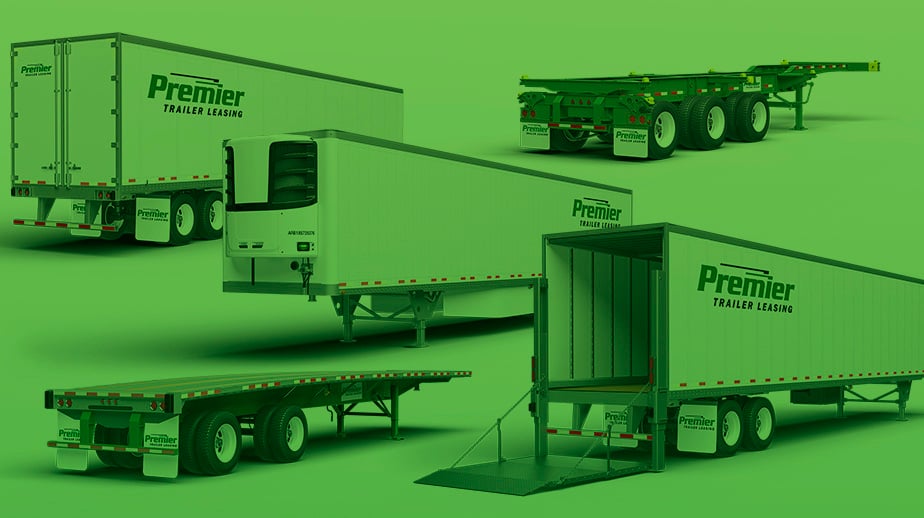How to Spec Your Trailer: Key Tips for Fleet Managers
Specifying the right trailer for your fleet is crucial for maximizing productivity, minimizing costs, and ensuring safety. With so many variables to consider, from trailer types to specific features, making the right choice can be challenging. Here’s a comprehensive guide to help fleet managers make informed trailer choices tailored to their operational needs.
1. Define Your Trailer's Purpose
- Storage, Cartage, or Over the Road: Each trailer has specific designations. Storage trailers are cost-effective but aren't road-ready, cartage trailers are ideal for short distances, and over-the-road trailers are best for long hauls. Define the primary purpose to guide your selection.
2. Consider Cargo Requirements
- Different cargo types require specific trailers. For example, temperature-sensitive goods need reefer trailers, while fragile cargo benefits from air ride suspension for smoother travel. Cargo needs can also affect trailer doors, floor types, and additional features like geofencing for security.
3. Loading and Unloading Considerations
- Door Options: Roll doors can streamline drop-and-hook operations, while swing doors maximize interior space.
- Floor Types: For refrigerated trailers, ducted floors enhance airflow, whereas flat floors work best for pallets and carts.
- Liftgates and Sensors: Liftgates assist with loading when docks aren’t available, and cargo sensors provide real-time updates on load status, optimizing turnaround time.
4. Choose the Right Trailer Components
- Suspension: Spring ride suspension offers durability for heavy-duty use, while air ride suspension ensures cargo safety and driver comfort.
- Axle Configuration: Close tandem axles provide easy maneuverability for city driving, while spread axles distribute weight for heavier loads on longer hauls.
5. Determine Trailer Age for Cost-Efficiency
- New trailers are reliable but have higher upfront costs. Middle-aged trailers offer a balance between cost and functionality, and older trailers are economical for storage or limited local use.
6. Integrate Advanced Trailer Technology
- Equip trailers with GPS tracking, geofencing, and cargo sensors. These technologies can increase efficiency, protect valuable cargo, and streamline fleet management.
7. Avoid Common Mistakes
- Don’t Use Storage Trailers on Roads: Road use requires trailers certified and maintained for travel.
- Prioritize Maintenance: Regular maintenance preserves trailer value and ensures safe, dependable service.
- Consult Specialists: Trailer specialists offer insights on maintenance, insurance, and selecting the right specs, which can prevent costly mistakes.
8. Assemble Your Ideal Fleet
- Tailor your fleet with a mix of trailers that meets your company's specific operational demands. Premier Trailer Leasing offers a wide selection of trailer types and configurations to support your goals.

Have Questions? We’re Here to Help
Choosing the right trailer specs is an investment in your fleet's long-term success. Ready to start building a customized trailer fleet? Contact Premier Trailer Leasing to explore solutions designed to meet your unique requirements.
If you have any questions or need further assistance in choosing the perfect trailer for your needs, don’t hesitate to reach out to us. Our knowledgeable team is here to provide expert advice and support, ensuring you find the best solution for your transportation requirements. Contact us today, and let’s get your operations moving smoothly!
Ryan is a Vice President and General Manager at Premier Trailer Leasing. With over a decade in the industry, Ryan is a seasoned trailer expert, striving to support his clients with the best trailer fleet recommendations to meet their unique needs. Connect with Ryan on LinkedIn to pick his brain.




